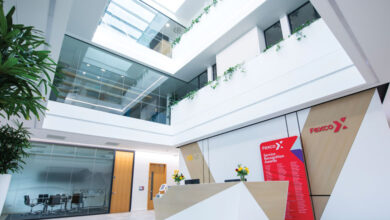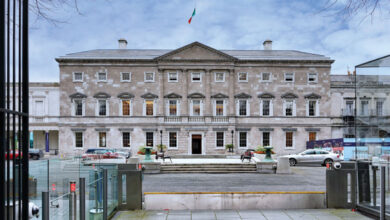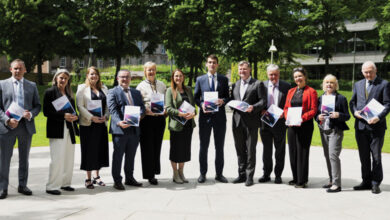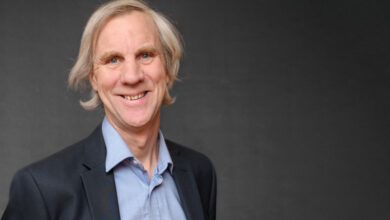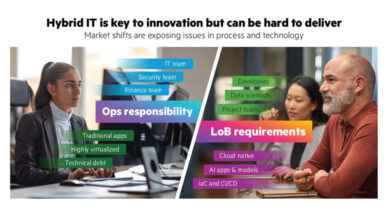Leo Varadkar TD: The changing world of work
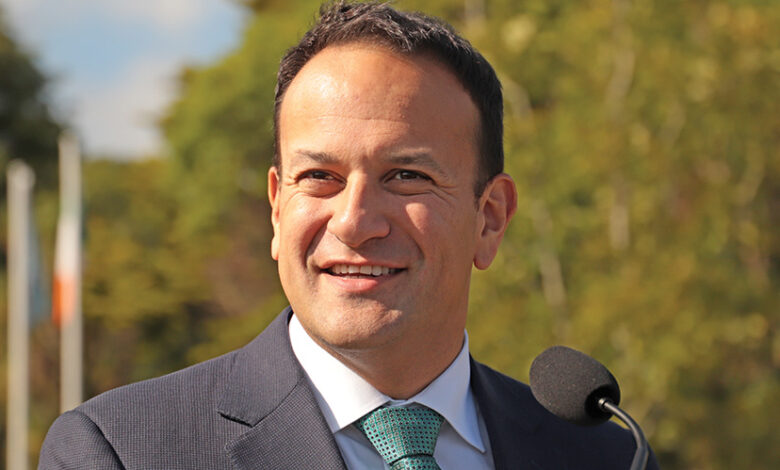
The pandemic changed the world of work forever. Millions of people and businesses around the world moved overnight from the office to home working. This shift might have taken decades if it had been planned. Instead, it took days, Tánaiste and Minister for Enterprise, Trade and Employment Leo Varadkar TD writes.
On balance, these are changes for the better. Less commuting, more time for family and leisure, and potentially fewer transport greenhouse gas emissions. New job opportunities are being created for people who want to live in rural Ireland, people with disabilities, and people with caring responsibilities. Small towns and villages have seen new investment, along with greater footfall and spend.
But there are risks as well. We do not want to turn our homes into workplaces where we are always on. We want to spread jobs more evenly across the country, but we do not want to lose them to other countries. We want to retain the creativity and innovation that flourishes from people meeting each other and do not want people to become isolated. We want our city centres to remain vibrant places.
So, in early 2021, I published Ireland’s first Remote Work Strategy. It is a cross-government plan to ensure we approach remote working cohesively and make it a permanent feature of Ireland’s workforce in a way that can benefit all – economically, socially, and environmentally.
Among its main actions are:
- Mandating that home and remote work should be the norm for 20 per cent of public sector employment. The public sector must lead by example and earlier this year we published a Blended Working Policy Framework for Civil Service Organisations, which was developed in collaboration with civil service employers, trade unions, and staff associations.
- Reviewing the treatment of remote working for the purposes of tax and expenditure in the next Budget. An enhanced income tax deduction of 30 per cent of heat, electricity and broadband expenses for remote workers was announced in Budget 2022.
- Mapping and investing in a network of remote working hubs across Ireland. We launched ConnectedHubs.ie, Ireland’s national digital hub network last year. There are currently 290 remote and co-working facilities across the country on-boarded to the connectedhubs.ie platform. This number is growing all the time meaning we are well on track to meet our target of 400 remote working hubs nationwide by 2025.
- Legislating for the right to request remote working. While reaching agreement on this legislation has been more difficult than expected, the Oireachtas Committee published its pre-legislative scrutiny report in July, and we plan to finalise our proposals before the end of the year.
- Developing a code of practice for the right to disconnect. I requested the Workplace Relations Commission to develop a Code of Practice on the right to disconnect and a legally admissible code was published in April 2021.
- Doing what we can to accelerate the provision of high-speed broadband to all parts of Ireland. While the National Broadband Plan has been impacted negatively by Covid-19, the Department of the Environment, Climate and Communications is continuing to engage with National Broadband Ireland and delivery of the Plan has regained momentum in recent months. Over 100,000 homes, farms and businesses will be passed (capable of being connected to fibre) by January and close to 200,000 by the end of next year.
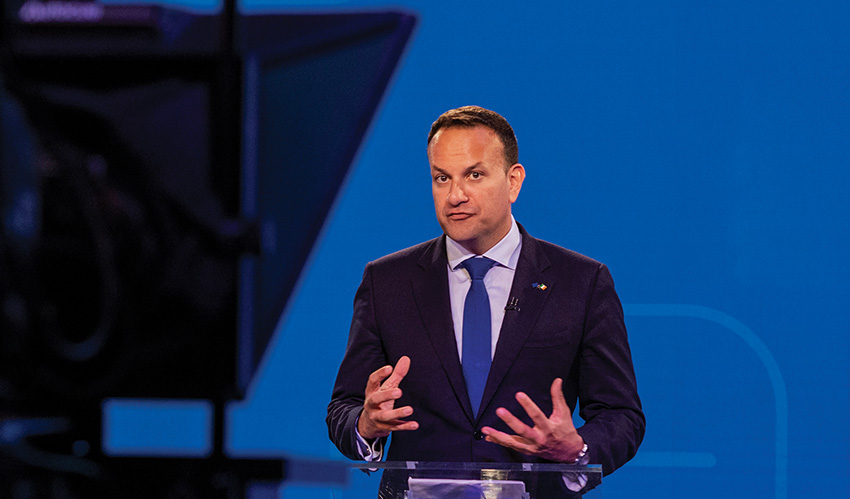
“Many of you have read about ‘quiet quitting’ and ‘the great resignation’. I am not so sure we are witnessing the start of new phenomena, but I certainly think people are re-evaluating their careers and their lives as a result of the pandemic. Perhaps, it will prove to be more a ‘great reset’.”
So, as you can see, good progress has been made.
Striking the right balance on the Right to Request Remote Work legislation has proven difficult. It will, for the first time, provide a legal framework around which requesting, approving, or refusing a request for remote work can be based. It will also provide legal clarity to employers on their obligations for dealing with such requests.
Of course, in practice, employers and employees are agreeing to arrangements that suit both sides. In the vast majority of workplaces, no legislation is required to make this happen. That is borne out by the results of the Third Annual National Remote Working Survey carried out by the University of Galway and the Western Development Commission.
The past two-and-a-half years, especially during lockdown, gave people the time to consider their lives, their work life balance, and the meaning of work.
Many of you have read about ‘quiet quitting’ and ‘the great resignation’. I am not so sure we are witnessing the start of new phenomena, but I certainly think people are re-evaluating their careers and their lives as a result of the pandemic. Perhaps, it will prove to be more a ‘great reset’.
Wages will be important, especially with inflation, but workers will increasingly push employers to be more creative about the types of jobs they offer.
“We want to retain the creativity and innovation that flourishes from people meeting each other and do not want people to become isolated. We want our city centres to remain vibrant places.”
The battle for talent in a globalised economy will become even more important in the coming years. Ukraine, inflation, labour shortages and a range of other factors are coming together to make that battle even more intense.
Employers will struggle to recruit and retain staff. Ireland will have to make sure it is ahead of the curve, offering better terms and conditions than elsewhere, to continue growing employment.
So, I believe better pay, terms and conditions make sense for everyone – for workers and families, for jobs, business, and investment and for the public finances.
I also believe that the most important workers’ right is the right to work, so we need to guard against any policies that might reduce employment levels or harm business. We need to be very cognisant of that at the most, given rising costs and falling consumer confidence, so we must not move too fast.
As a government, we are working to ensure the pandemic leaves a legacy of a more inclusive and secure society.
Full employment. Good jobs. Secure jobs.

